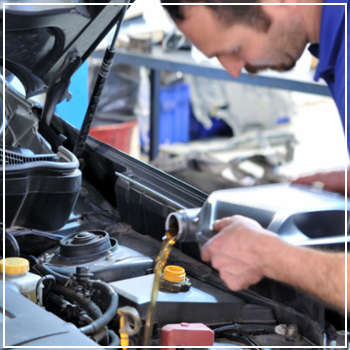 As you’re driving, your car’s dashboard icon lights up. It’s been 5,000 miles since your last oil change, so you think driving a few more miles won’t hurt. Your car seems to run well, after all.
As you’re driving, your car’s dashboard icon lights up. It’s been 5,000 miles since your last oil change, so you think driving a few more miles won’t hurt. Your car seems to run well, after all.
You decide to wait to schedule an oil change appointment. Yet, oil as a vehicle fluid has multiple purposes. It lubricates, cleans, cools and prevents corrosion within your car’s engine, helping it regulate heat and ensuring its parts move efficiently. Drivers are advised to get their car’s oil changed every 3,000 to 5,000 miles, depending on make and model, and waiting past this point can result in the following three scenarios.
Increase Its Metal Content
The longer you wait to change the oil, the more insoluble content builds up inside, including:
- Iron: Oil with a high level of iron places more wear on your car’s metal parts.
- Aluminum and Chromium: Higher percentages of these metals place more wear on the piston and piston ring.
- Dirt and Soot: These particles, too small to be caught by the filter, continue to build up in the oil. As a result, its viscosity becomes more abrasive, which in turn places more wear on your engine.
Change Its Consistency
Also, the longer you wait to change the oil, the more its consistency changes. Particularly, anti-oxidizing and anti-wear additives break down, making the oil thicker. As a result, your oil doesn’t flow and move between parts as well.
In some cases, the viscosity modifiers, such as detergents, dispersants, rust-fighters and anti-friction compounds, also break down, making the oil thinner at higher temperatures. As a result, the oil doesn’t lubricate as well, so any metal parts end up grinding together and experience wear.
Damage Your Engine
Too thick or a lack of oil can lead to the following ramifications that ultimately damage your engine:
- Over-Heating: Without oil, your engine’s parts become too hot, which impacts its efficiency and causes parts to warp or wear out. With friction added into the picture, certain parts’ surfaces may weld together, which prevents the engine from working properly.
- Shut Down: When these issues go unchecked, your engine may shut down and will need to be replaced. Costs for this go into the thousands of dollars – even to the point that you may want to forgo repairs and just buy a new vehicle.
For all your car’s maintenance needs, including fluid changes and filter replacements, make regular appointments with DaSilva’s Auto Body, even before the dashboard light comes on! Contact us today.




